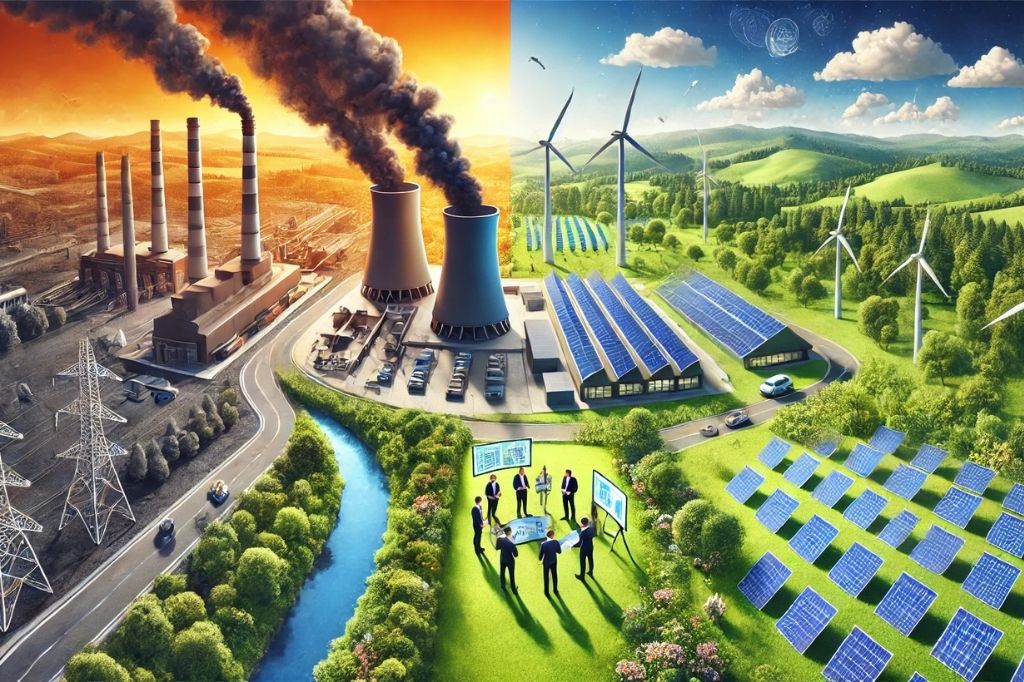As the demand for energy increases, the environmental consequences of this demand are becoming inevitable. Especially non-renewable energy sources such as fossil fuels seriously affect both natural habitats and ecosystems. So, does really non renewable energy negatively impact habitats and ecosystems?
While we are looking for an answer to this question, we will focus on both scientific facts and a human perspective. Get ready to discover the dark side of the energy world!
The Impact of Non-Renewable Energy Sources on Habitats
The most obvious effect of non-renewable energy sources is that they destroy natural habitats. From coal mines to oil wells, this type of energy production often causes large-scale land changes.
1. Habitat Loss: During coal mining or oil drilling, large areas of forests and other natural habitats are being destroyed. This situation leads to the loss of habitat of local species and the reduction of their populations.
2. Groundwater Pollution: Chemicals used during oil and natural gas extraction can pollute groundwater resources. This situation negatively affects all living species that depend on water resources.
3. Deforestation: New roads and infrastructures opened for energy production can lead to large-scale deforestation. This contributes not only to habitat loss, but also to climate change.
Long-Term Effects of Non-Renewable Energy on Ecosystems
Non-renewable energy sources affect not only habitats, but also broader ecosystems. These effects are often overlooked, but in the long run they are much more devastating.

1. Biodiversity Loss: Habitat loss has a direct impact on biodiversity. The extinction of certain species can disrupt the balance of the entire ecosystem. For example, the loss of a predator species can lead to an uncontrolled increase of prey populations.
2. Soil Erosion: Mining and drilling activities can disrupt the natural structure of the soil. This situation also affects agricultural areas by increasing soil erosion.
3. Marine Ecosystems: Accidents such as oil spills seriously affect marine life. Fish, corals and other marine creatures can be greatly damaged by such disasters.
Environmental Costs of Fossil Fuel Use
The environmental costs of non-renewable energy sources are often ignored in comparison with the economic benefits. But these costs create a deeper and long-term problem due to their impact on ecosystems.
1. Carbon Emission: Fossil fuels cause the release of large amounts of carbon dioxide. These gases accelerate climate change by increasing the greenhouse effect.
2. Air and Water Pollution: Chemicals released during energy production cause air and water pollution. This condition leads to serious health problems for both humans and the natural world.
3. Climate Change: The use of non-renewable energy sources increases the frequency and severity of natural disasters. Events such as floods, droughts and hurricanes disrupt the natural balance of ecosystems.
Alternative Solutions and the Transition Process
The transition to renewable energy sources is of critical importance in order to reduce the environmental impact of non-renewable energy sources. However, this process requires not only a technological change, but also a social and political transformation.

1. Renewable Energy Sources: Renewable energy sources such as solar, wind and hydropower are both environmentally friendly and sustainable. Investments in these resources can make a big difference in terms of protecting ecosystems.
2. Energy Efficiency: Developing technologies that consume less energy is an effective way to reduce the use of fossil fuels. This can be applied both on an individual and industrial level.
3. Public Awareness and Policy Changes: The reorganization of energy policies to give priority to renewable sources can accelerate this transition process. In addition, raising public awareness is also of great importance.
Does non renewable energy negatively impact habitats and ecosystems The answer to the question is definitely yes. The use of fossil fuels destroys natural habitats, reduces biodiversity and leads to environmental degradation. However, this situation can be changed with the transition to renewable energy.
Taking a step towards a cleaner and more sustainable future is both an individual and a social responsibility. It’s time to take action now to protect natural life and leave a more livable world for future generations!
Remember, energy is not only a resource, but also a choice. How about making a better choice?